- Overview
- Symptoms
- Causes & Risks
- Types of Eczema
- Locations on the Body
- Tests & Diagnosis
- Treatment
- Complications
- Living With
- View Full Guide
How to Choose an Eczema Shampoo

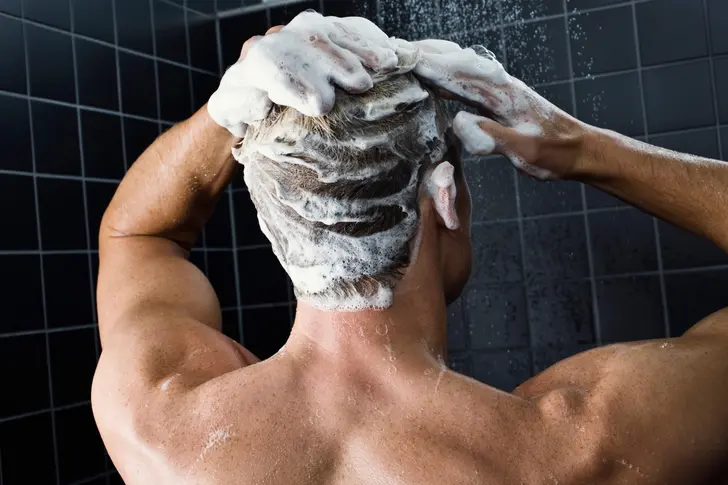
Eczema and Your Scalp
Eczema on your scalp can cause itching, flaking, and irritation. Choosing the right shampoo can help with these symptoms and keep your scalp healthy. Look for products designed for sensitive skin or labeled as suitable for eczema. These shampoos often contain ingredients that soothe inflammation, reduce itching, and help maintain the skin's natural moisture barrier. You may need to try a few options to find the best one for your scalp.

Key Ingredients to Look For
When selecting a shampoo for eczema, look for products that soothe itching and reduce inflammation. Salicylic acid can help remove scales, while coal tar may slow skin cell growth and reduce inflammation. Zinc pyrithione has antifungal properties that can help with dandruff. Be cautious with fragrances and sulfates, as these can irritate sensitive skin.
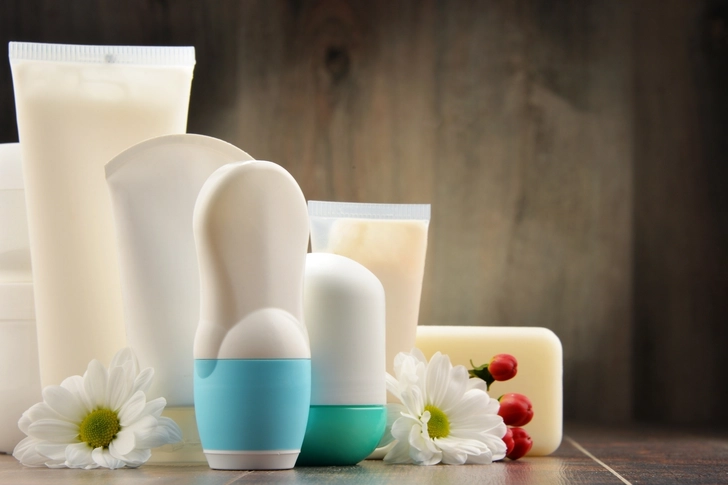
Medicated vs. Nonmedicated Shampoos
Both medicated and nonmedicated shampoos can help manage scalp eczema. Medicated shampoos often contain active ingredients like ketoconazole, selenium sulfide, or zinc pyrithione, which target symptoms like fungal overgrowth or excessive oil production. Nonmedicated shampoos focus on gentle cleansing and moisturizing. Your choice between medicated and nonmedicated options should depend on the severity of your symptoms and your dermatologist's recommendations.
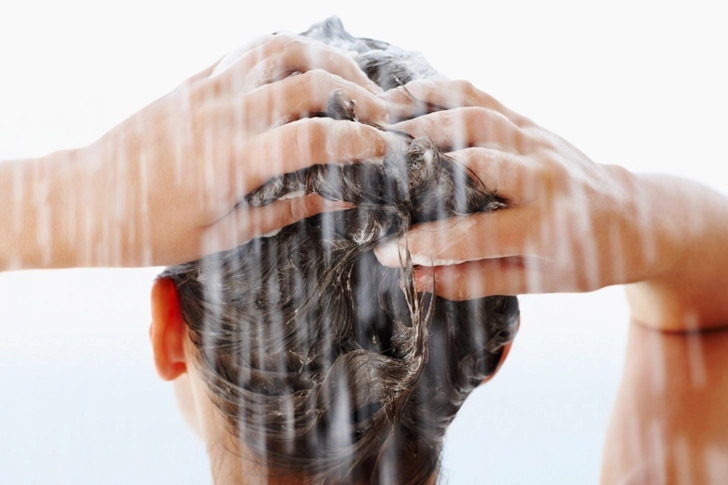
How Often to Wash Your Hair
Generally, it's recommended to wash your hair no more than once or twice a week. However, you may want to wash more frequently if you have severe flaking or itching. Avoid hot water, which can strip natural oils and irritate the scalp. Use lukewarm water instead. If you're using a medicated shampoo, follow the instructions on the label or your doctor's advice. Some medicated shampoos may need to be used more or less frequently than regular shampoos.
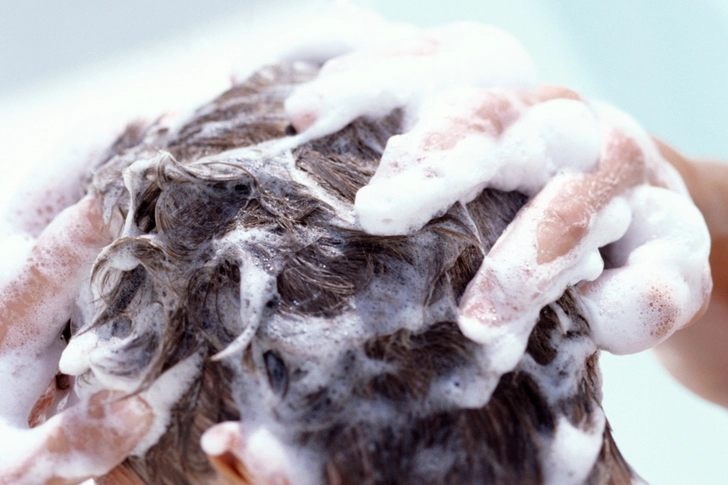
Be Gentle With Your Scalp
Gently massage shampoo into your scalp with your fingertips. This helps to remove dead skin cells and excess oil without causing further irritation. Avoid scrubbing vigorously, as this can damage the skin and make eczema symptoms worse. After applying the shampoo, let it sit on your scalp for a few minutes before rinsing thoroughly with lukewarm water. This allows the active ingredients to work effectively. If you're using a medicated shampoo, your doctor may recommend leaving it on for a specific amount of time.
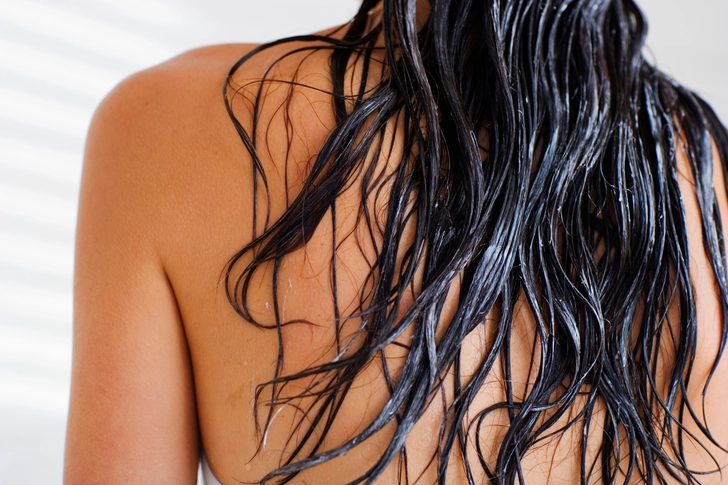
Conditioning and Moisturizing
After shampooing, use a gentle, fragrance-free conditioner on the lengths and ends of your hair, avoiding the scalp if it's very sensitive. For extra scalp care, consider using a leave-in conditioner or a light, nongreasy moisturizer specifically designed for the scalp. These products can help soothe irritation and lock in moisture. Patch test new products before applying them to your entire scalp.
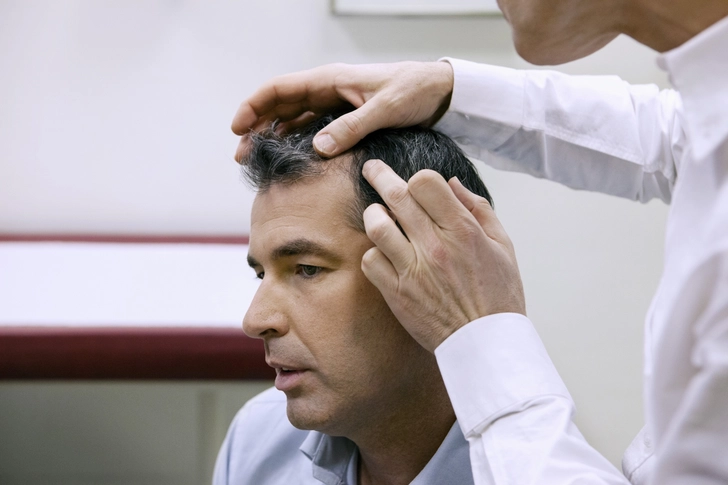
When to Seek Medical Help
Talk to your doctor if you experience severe itching, redness, or pain, if your symptoms are interfering with daily life, or if you have signs of infection such as oozing or increased warmth in the affected area. A dermatologist can help identify triggers and suggest lifestyle changes to manage your symptoms better.
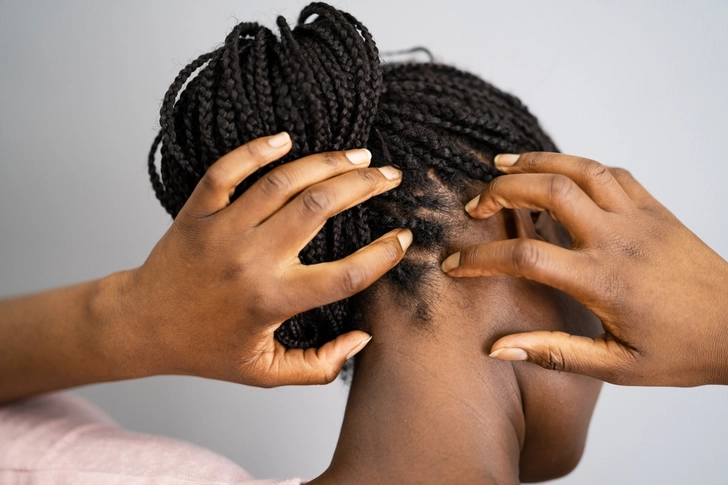
More Tips for Scalp Care
What else can you do to manage scalp eczema? Avoid scratching your scalp, as this can lead to infection and worsen symptoms. Instead, try gently patting or applying a cold compress to relieve itching. Consider using a humidifier in your home to add moisture to the air, especially in dry climates or during winter. Reduce stress through relaxation techniques or exercise, as stress can trigger or worsen eczema flare-ups.
PHOTO CREDENTIALS
Slide 1 - The Image Bank/Getty Images
Slide 2 - E+/Getty Images
Slide 3 - Pond 5
Slide 4 - Jacob Wackerhausen/Getty Images
Slide 5 - Taxi/Getty Images
Slide 6 - Thinkstock
Slide 7 - Image Point Fr/Shutterstock
Slide 8 - Andrey_Popov/Shutterstock
SOURCES
CDC: "Parasites: Head Lice," "Ringworm," "Treatment of Ringworm and Fungal Nail Infections," "About Head Lice."
Cleveland Clinic: "Do You Have an Itchy Scalp? 5 Common Problems and Fixes," "Itchy Scalp? 8 Common Causes and How To Find Relief," "Why Does Psoriasis Itch and How To Stop It," "Experiencing Scalp Psoriasis? Learn How To Treat and Reduce Hair Loss," "Tinea Capitis," "Atopic Dermatitis," "Contact Dermatitis.”
Mayo Clinic: "Dandruff.”
National Psoriasis Foundation: "About Psoriasis," "Best Psoriasis Shampoos Your Scalp Will Love."
American Academy of Dermatology Association: "Scalp Psoriasis: Shampoos, Scale Softeners, and Other Treatments," "10 Reasons Your Scalp Itches and How to Get Relief," "Dry Shampoo: Dermatologists' Tips for Getting Your Best Results," "How to Treat Dandruff," "Scalp Psoriasis: Overview."
American Family Physician: "Diagnosis and Treatment of Seborrheic Dermatitis."
MedlinePlus: "Ketoconazole Topical."
National Eczema Society: "Scalp eczema."
Bruce A. Brod, MD, MHCI, FAAD, clinical professor of dermatology and director, contact dermatitis and occupational dermatology, University of Pennsylvania Perelman School of Medicine, Philadelphia.
American Academy of Dermatology Association: “How Can I Find Eczema Friendly Products?” “Eczema Treatment: Coal Tar Preparations,” “Seborrheic Dermatitis: Tips For Managing.”
International Journal of Cosmetic Science: “A review of shampoo surfactant technology: consumer benefits, raw materials and recent developments.”
Environmental Health Insights: “Human and Environmental Toxicity of Sodium Lauryl Sulfate (SLS): Evidence for Safe Use in Household Cleaning Products.”
Skin Appendage Disorders: “Treatment of Seborrhoeic Dermatitis in Asia: A Consensus Guide,” “Pro and Contra of Cleansing Conditioners.”
International Journal of Trichology: “Hair Cosmetics: An Overview.”
University of Queensland: “What is sodium lauryl sulfate and is it safe to use?”